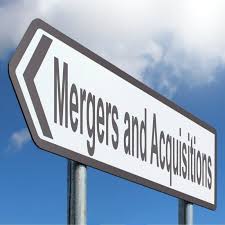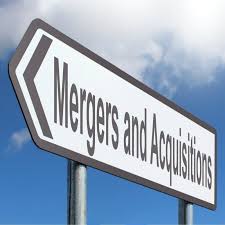
The trade war between the United States and China will force a change in the global supply chains which will result in an increase in mergers and acquisitions in the coming year according to opinions expressed by more than half of deal makers, said a new report on the issue.
According to the report by accounting and business services firm Baker Tilly International and financial data provider Mergermarket, the top drivers of deals in the future will be increasing tariffs and other barriers to trade, said 77 per cent of the deal makers who participated in the survey.
“We are seeing strong interest among buyers despite the geopolitical turbulence in almost every corner of the globe, and respondents believe this will continue into the year ahead,” said Michael Sonego, global corporate finance lead at Baker Tilly.
The report was based on survey interviews of 150 deal makers between July and August this year. One fourth of the respondents were from the United States. Representatives of private equity or venture capital firms accounted for thirty nine per cent of the respondents.
It has been more than one year that the trade war between the US and China have been ongoing with both countries imposing import tariffs on each other’s goods worth billions of dollars.
After months of negotiations on trade issues the two sides have now agreed on a so called “phase-one” agreement on trade, according to which China has pledged to purchase American agricultural products to in greater volumes while the United States will postpone the last announced enhanced import tariffs on Chinese goofs. However no deal is expected to be signed between the two parties before the Asia-Pacific Economic Cooperation (Apec) Forum in Chile next month.
“We are seeing strong interest among buyers despite the geopolitical turbulence in almost every corner of the globe, and respondents believe this will continue into the year ahead,” said Michael Sonego, global corporate finance lead at Baker Tilly.
This trade war and the uncertainty that it has creased for trade all across the world has impacted sectors like technology, among others, of the Chinese economy. It has also slowed down global trade and upended the global trade and supply chains of global companies. This has forced companies to curtail investments and seek ways around the protectionist trade environment.
Mergermarket said in a separate report this month that in the first nine months of, there was a more than 11 per cent decline in the value of global M&As at US$2.49 trillion globally despite the enthusiasm among deal makers. This compared with the value of global M&As US$2.82 trillion in same period a year ago.
The slowdown in M&As was more acute in the Asia-Pacific region excluding Japan which recorded a drop of 28 per cent in such activities at a total of US$383.5 billion through the end of September because of the rising tensions in trade between the US and China and the ongoing political turbulence and pro democracy protests in Hong Kong, said the Mergermarket report. The volume of M&As was the lowest since 2013 for the region.
Tensions over trade and technology between the world’s two biggest economies have “only just started”, said Shaun Roache, chief Asia-Pacific economist at S&P Global Ratings.
“Yes, we’ll get a new deal by the looks of things at the Apec meeting,” Roache said at an event in Hong Kong. “But, this is a very deep issue that will not get resolved quickly. We’re all going to have to learn to live with what this means for Asia and for the global economy … It doesn’t mean we’re going to get a recession in the next 12 to 18 months, but this will be bubbling along in the background for some time.”
(Source:www.scmp.com)
According to the report by accounting and business services firm Baker Tilly International and financial data provider Mergermarket, the top drivers of deals in the future will be increasing tariffs and other barriers to trade, said 77 per cent of the deal makers who participated in the survey.
“We are seeing strong interest among buyers despite the geopolitical turbulence in almost every corner of the globe, and respondents believe this will continue into the year ahead,” said Michael Sonego, global corporate finance lead at Baker Tilly.
The report was based on survey interviews of 150 deal makers between July and August this year. One fourth of the respondents were from the United States. Representatives of private equity or venture capital firms accounted for thirty nine per cent of the respondents.
It has been more than one year that the trade war between the US and China have been ongoing with both countries imposing import tariffs on each other’s goods worth billions of dollars.
After months of negotiations on trade issues the two sides have now agreed on a so called “phase-one” agreement on trade, according to which China has pledged to purchase American agricultural products to in greater volumes while the United States will postpone the last announced enhanced import tariffs on Chinese goofs. However no deal is expected to be signed between the two parties before the Asia-Pacific Economic Cooperation (Apec) Forum in Chile next month.
“We are seeing strong interest among buyers despite the geopolitical turbulence in almost every corner of the globe, and respondents believe this will continue into the year ahead,” said Michael Sonego, global corporate finance lead at Baker Tilly.
This trade war and the uncertainty that it has creased for trade all across the world has impacted sectors like technology, among others, of the Chinese economy. It has also slowed down global trade and upended the global trade and supply chains of global companies. This has forced companies to curtail investments and seek ways around the protectionist trade environment.
Mergermarket said in a separate report this month that in the first nine months of, there was a more than 11 per cent decline in the value of global M&As at US$2.49 trillion globally despite the enthusiasm among deal makers. This compared with the value of global M&As US$2.82 trillion in same period a year ago.
The slowdown in M&As was more acute in the Asia-Pacific region excluding Japan which recorded a drop of 28 per cent in such activities at a total of US$383.5 billion through the end of September because of the rising tensions in trade between the US and China and the ongoing political turbulence and pro democracy protests in Hong Kong, said the Mergermarket report. The volume of M&As was the lowest since 2013 for the region.
Tensions over trade and technology between the world’s two biggest economies have “only just started”, said Shaun Roache, chief Asia-Pacific economist at S&P Global Ratings.
“Yes, we’ll get a new deal by the looks of things at the Apec meeting,” Roache said at an event in Hong Kong. “But, this is a very deep issue that will not get resolved quickly. We’re all going to have to learn to live with what this means for Asia and for the global economy … It doesn’t mean we’re going to get a recession in the next 12 to 18 months, but this will be bubbling along in the background for some time.”
(Source:www.scmp.com)





